Death, Life, Growth
![]() Most days, first thing in the morning, I pull three cards for myself. The first card represents me, my energy for the day.
Most days, first thing in the morning, I pull three cards for myself. The first card represents me, my energy for the day.
Yesterday, that card was Death.
If this were a movie, there would have been a sweep of loud, ominous music. I’d have gasped, eyes wide in terror. And the next scene would have been weeping mourners at my funeral.
But this is Tarot for real life, not Hollywood. The Death card hardly ever means actual death, and in my situation (as it generally is) it was a positive card.
But still, it’s a thing to think about, particularly as you move past your youth. When you reach middle age and beyond, we’ve seen family die. We’ve seen friends die. Mortality is real. Not immanent, we hope, but real.
I’ve been interested in Stoicism for some while. In many ways, it’s a good fit for my pragmatic, self-aware, rational inclinations. Like many philosophies and religions, it recommends living in the ‘now’. In particular, Stoicism wants us to determine what is and what isn’t within our control, and to focus our efforts on those things within our control. Essentially, the only thing within your control is your own actions, and your response to the things that happen to and around you. You cannot control what happens (or not much), and you certainly cannot control other people’s actions and feelings. So why waste precious minutes of your “one wild and precious life” fretting over things entirely outside your control?
One of those things is death.
Death. The great inevitability. It happens to us all, sooner or (we hope!) later. The Stoics have an approach to this reality, which they called “memento mori” . The idea being that if you accept the fact that you’re going to die, you will treasure life, and all it brings you, exponentially more.
If you knew that you were going to die in 24 hours, how would you spend those last hours? Would you gather all your loved ones together and let them know how very much you appreciate them? Perhaps you’d go for a long walk in the woods and savour the peace and beauty of nature. Maybe you’d spend your last day treasuring the things in life you love the most: a sunrise, an amazing meal, fabulous sex, art, music? I’m betting that what you would not be doing is fretting for four hours about that mean-spirited thing your co-worker said last Tuesday.
Death, as Samuel Johnson said (slightly paraphrased) “has a wonderful way of concentrating the mind”.
What really matters? What really doesn’t? It turns out that the top regret of people as they approach death is that they didn’t live a life true to themselves.
Authenticity. Integrity. Passion.
That Death card inspired me, inspires us all, to ask, “Who am I, really? What do I want, really? What gives meaning to my life?” There are lots of things that are meaningful, but not all of them will inflame your particular passion. The thing to discover is “What give meaning to my life?” And then ask yourself, “Am I pursuing that, right now?” So often, we end up doing what’s expected, or simplest. We take the path of least resistance. We drift instead of living according to our values and passions.
The Death card invites us to look beyond the things that have passed in our life, the old habits and relationships that no longer serve. It’s appropriate to mourn the passing of something that was once meaningful. But you don’t want to stand there staring at a corpse forever.
When I looked at the card, which I have seen many times before, my eyes were drawn away from the figures in the foreground, and moved instead to the sun rising between the two towers in the distance. (I was using the Mucha tarot, which is the card on the right.) There’s a new dawn breaking over there. That’s the rest of my life. I want to engage with it, fully!
And you. What old, stale things do you have to release? What new things are waiting? What lies within you, waiting to be set free to grow?


